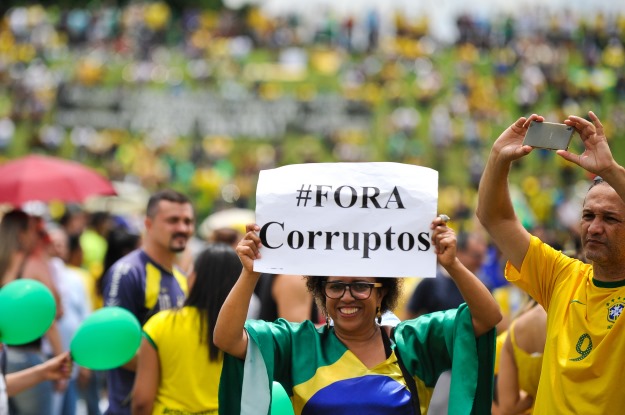The revelations of years of immense and systemic bribe payments to policymakers across Latin America by engineering and construction conglomerate Odebrecht are an unmitigated disaster for Brazil – and its foreign policy of the last decade and a half.
The internationalization of Brazilian capitalism – that is, the government’s strategy of boosting Brazil’s influence by supporting the activities of its large companies abroad – was a key pillar of regional foreign policy starting in the mid-2000s. This policy allowed Brazil not only to achieve unprecedented visibility and access from Buenos Aires to Panama City, but also to establish a powerful narrative about its benign, stabilizing and modernizing impact abroad. Yet even at this early stage of investigations, it has become clear that through its companies, Brazil also promoted bad governance and corruption in a region where rule of law is far from consolidated. The affair is a body blow to Brazil’s regional reputation and leadership ambitions, already weakened due to its economic and political crisis.
Yet, the crisis also presents a golden opportunity to ensure that the investigation was not a fluke – and that the rule of law is spreading. In that context, regional cooperation to combat organized crime and corruption – probably Latin America’s greatest challenge today – will be essential. Three strategies come to mind:
1) Latin American governments should make fighting corruption a centerpiece of their foreign policies, by helping public prosecutors, anti-corruption task forces of the federal police and judges gain their own institutionalized platforms and channels of communication. Creating joint task forces will facilitate the sharing of information and specialized training, particularly in countries where these structures are underdeveloped or not politically independent. In the case of the Odebrecht investigation, this is already happening: Peruvian public prosecutors are in close contact with the Lava Jato corruption investigation team in Curitiba, Brazil. Hamilton Castro, a Peruvian prosecutor, has recently opened investigations into Camargo Corrêa, another Brazilian construction firm.
2) Governments should incentivize and support the creation of regional networks of law schools that train law students, public prosecutors, legislators, journalists, and activists. They should, in turn, use aspects of the Lava Jato investigation (including plea bargains) and Brazil’s freedom of information law as case studies of how similar investigations can be initiated and strengthened elsewhere. Those discussions should also study how companies like Odebrecht have recently attempted to embrace tougher compliance requirements and have created specific anti-corruption departments (and eliminated the mundane-sounding “structured operations” division, which was responsible for bribery payments). Debates must also include analyzing the root causes of corruption, such as, in Brazil’s case, the excessive number of political parties and the high cost of campaigning.
3) The anti-corruption agenda must become a centerpiece of existing institutional setups and become a priority during Mercosur, UNASUR and OAS meetings. Only then will the integration of anti-corruption measures into everyday foreign policymaking be fully institutionalized. Within Mercosur in particular, members should create peer pressure to adopt more ambitious anti-corruption legislation to be reviewed periodically. An agreement to create joint task forces, proposed years ago, has yet to be ratified.
Given its centrality in one of history’s greatest corruption scandals, Brazil should take the lead in the enterprise. Brasília must actively show the world how it is willing to embrace tougher anti-corruption legislation and how it is able to take a lead in international efforts to help curb corrupt practices beyond its neighorhood. In the case of Lava Jato, Brazilian prosecutors have over one hundred cooperation agreements in almost 40 countries around the world to exchange information, identify fraud and combat international crime, a number that is expected to increase in the coming months. Seventeen countries, including Italy, Argentina and the United States, have already contacted Brazilian authorities asking for information related to Lava Jato to advance their own investigations.
That also involves accelerating the ratification of various pending anti-corruption agreements, and second, promoting the debate on this topic on the big stages in 2017: the World Economic Forum in Davos, the International Security Conference in Munich, the G20 in Hamburg, the 9th BRICS Summit in Xiamen, and the U.N. General Assembly in New York. This is particularly urgent considering that the United States’ role in the global fight against corruption may change under President-elect Donald Trump.









